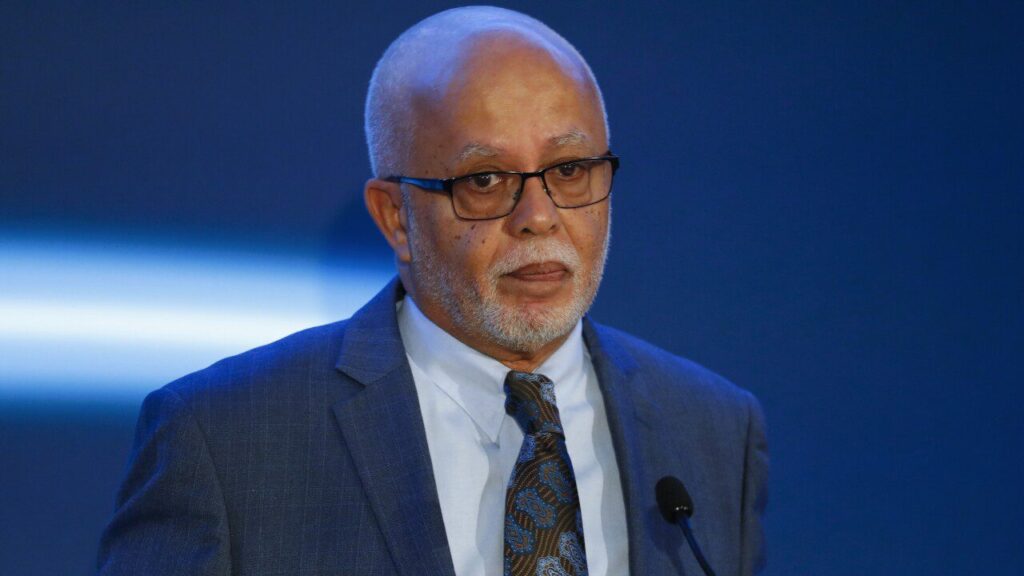During his State of the County address Tuesday night at the Ford Community and Performing Arts Center in Dearborn, Wayne County Executive Warren Evans called for a Public Health State of Emergency at the Wayne County Juvenile Detention Facility.
“The situation has become untenable for nearly 140 youths that are currently residing there,” he said during his first in-person State of the County address since 2019. “Extraordinary action has become necessary, which is why, today, I am calling for a public health state of emergency.
“This order, under the powers of the county’s health officer, will allow us to establish an incident command structure reporting directly to me, which will expedite action to adequately staff and provide therapeutic services in the facility,” he added. “But in the end, the most important action needed to address this situation is for the state to provide long-term residential beds. We will continue to explore every effort to work with them to expedite that solution. As our partnership with the state progresses, our hope is that we’ll be able to rely on them to do their part and get children out of our facility and into the long-term placements they deserve.”
The public health state of emergency comes after months of overcrowding in the facility, driven largely by the dwindling number of long-term stay beds made available by the state for post-adjudicated youths. The number of residents in the JDF facility nearly doubled between 2021 and 2022. In 2021, the average number of juveniles in the facility was 68. There are 137 in the facility today. Concurrently, the average stay has ballooned from 21 days to 127 days. One child languished in the facility for more than 800 days awaiting a placement. The overcrowding has created a staffing crisis in the facility.
Under the Public Health Emergency, the county hopes to expedite staffing and therapeutic services to increase safety and security, and to facilitate efforts to partner with Third District Court and the state to find solutions to overcrowding created by the state’s long-term bed shortage.
Evans also spoke about plans to champion new efforts into public health by targeting chronic illnesses such as asthma and said he intends to invest $60 million in the county’s Health Department, thanks to federal funds through the American Rescue Plan.
“COVID-19 tested the resiliency of the institution we had built over the past eight years, and Wayne County passed the test,” he said. “At the beginning of COVID, the people who were mostly likely to die from it looked like me, but together we took on the challenge of racial disparities.”
Evans also announced the county’s plan to address environmental health. His administration will soon install 100 air monitors, including 500 mobile air monitors for children on their backpacks to gather information and monitor sick children to remind them to use their inhalers. Evans said he hopes the plan will help the government learn about asthma rates and environmental health while holding air polluters accountable.
“We can use this data to take immediate action,” he said. “We will notify parents when air quality is low, helping them to protect their children before they end up in the emergency room. As for polluters, lets just say the next time they apply for their permits, we’ll be waiting with the data we need to hold them accountable.”
During the course of his 70-minute speech at the well-attended, invitation-only event Evans also spoke about the county’s progress under his leadership, providing slides to showcase key achievements.
He reminded the audience — which included Detroit Mayor Mike Duggan, Dearborn Mayor Abdallah Hammoud, Inkster Mayor Patrick Wimberly, Dearborn Heights Mayor Bill Bazzi, Westland Mayor Mike Londeau, county commissioners, Sheriff Raphael Washington, Prosecutor Kym Worthy, community leaders and other distinguished guests — that his administration’s efforts dodged bankruptcy, tackled previous inefficiencies and transformed the county into a financially sound government with a surplus and the highest ratings.
“Against those odds, we made it work,” he said. “Now we are stronger, more stable, more financially sound than Wayne County has been in many many years.”
Evans said his administration passed eight straight balanced budgets, including surpluses. He pressed on his operational and financial management success, noting that the county’s improved credit rating from Wall Street went from junk bond status when he took office in 2015 to an A credit rating.

Wayne County Executive Warren C. Evans
“We have continuously focused our efforts on providing better service,” Evans said. “We’ve empowered families and businesses with programs and resources designed to help them through the pandemic and we’ve adjusted our own operations to cope with this crisis with programs and resources designed to help them through the pandemic. We’ve adjusted our own operations to cope with this crisis.”






Leave a Reply